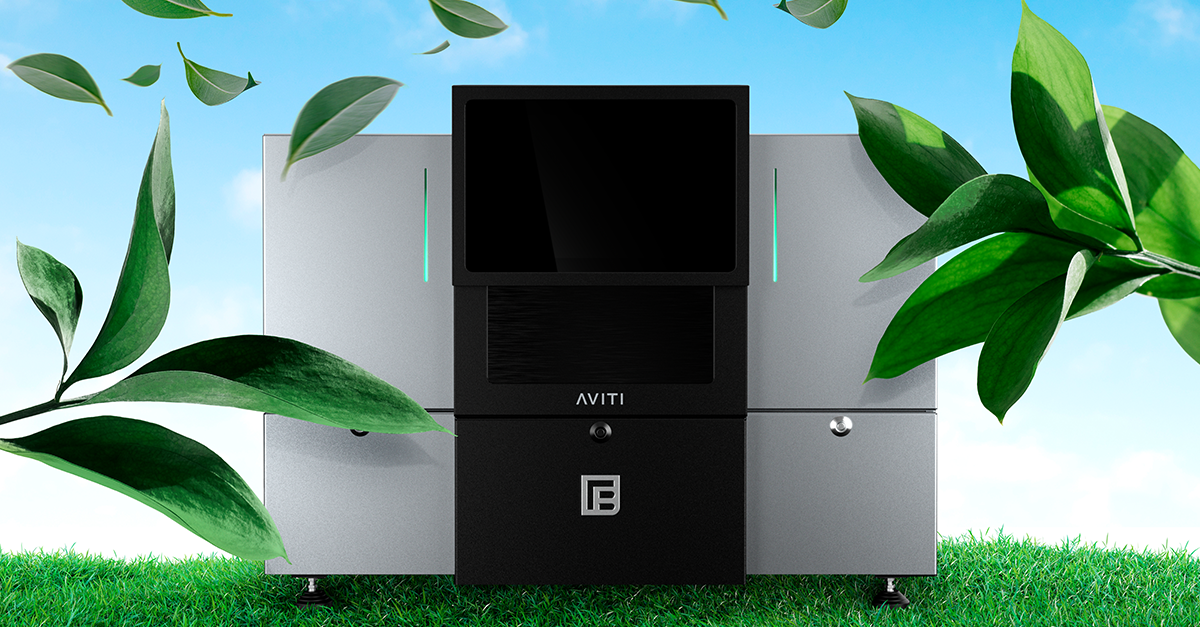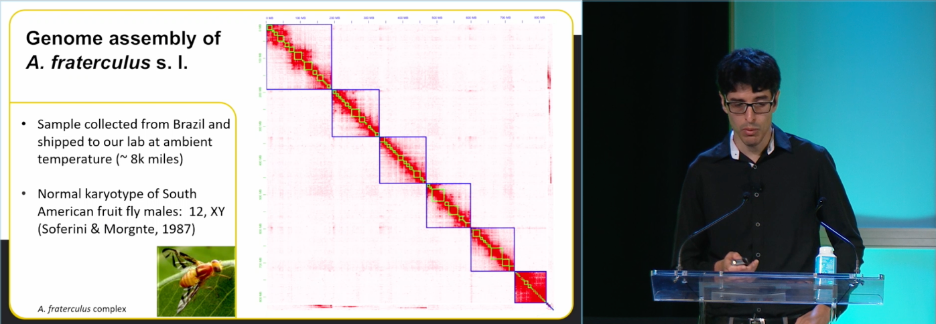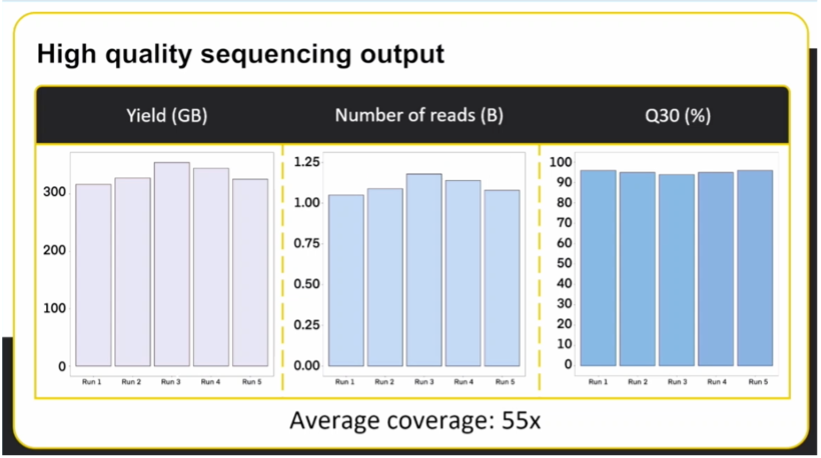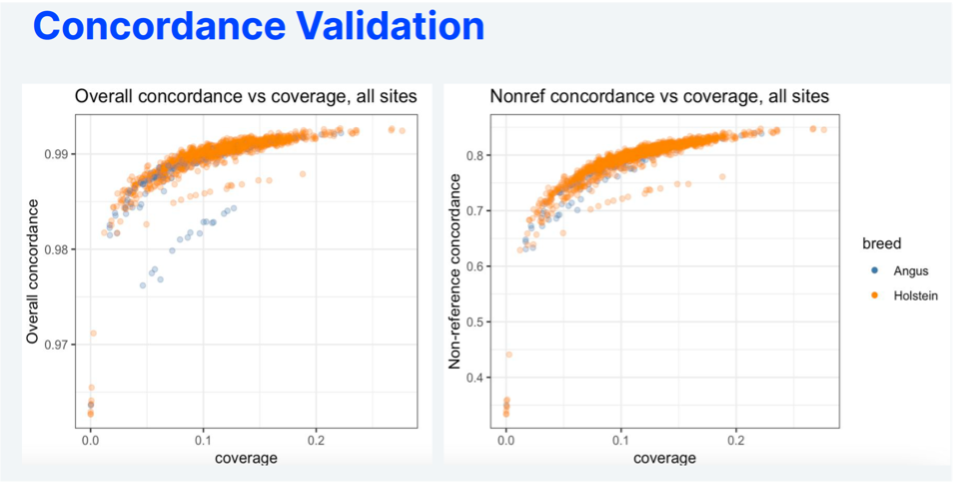
If there is one takeaway from the 2023 Advances in Genome Biology and Technology – Agriculture (AGBT Ag) meeting, it’s that while the challenges of feeding the planet amidst climate change are many, the global mobilization to meet those challenges is equally impressive. AGBT Ag participants gathered in San Antonio, Texas to hear from an international array of speakers on wide-ranging topics, including how to extend the benefits of genomics to all, new strategies for connecting trait genotypes to phenotypes, novel approaches to genome editing, and newly available genomics tools.
AGBT Ag attendees had multiple opportunities to learn how agricultural researchers are already making use of the Element Biosciences AVITI™ System to accelerate their science. First, Carlos Congrains Castillo, a postdoctoral researcher at the University of Hawaii and the Scott Geib Lab at the USDA ARS, spoke at the Element Gold Sponsor Workshop about using the AVITI to improve the identification of invasive Tephritidae fruit flies. Carlos recounted that arthropods cause 20% of agricultural losses, and once established, are enormously expensive to eradicate. Early detection is key, but species with disparate ecological traits and economic impacts can be very hard to distinguish, especially in the larval and pupal stages that are typically found by fruit inspections at agriculture border checkpoints. One example is the mango fruit fly complex, comprised of 4 cryptic species. In this case, even DNA barcoding using standard sequences cannot adequately resolve members of the complex. Carlos discussed several strategies he is pursuing to improve the speed and accuracy of fruit fly identification.

One line of experiments involves combining long read sequencing with Hi-C data generated on the AVITI to generate reference assemblies from either lab grown or field-collected samples, where sample input and quality can be challenging. (Figure 1)
A second line of research involves developing better markers for genotyping. Carlos shared his work resequencing members of the mango fruit fly complex (the Bactrocera frauenfeldi complex) to identify markers in regions of high genomic differentiation to improve the speed and reliability of phylogenetic analysis. With high quality data generated on the AVITI, Carlos was able to pilot a new approach for rapid genotyping of B. frauenfeldi complex species by using pairwise FST to identify ~1,000 SNPs that are highly differentiated across the complex. Using only these markers instead of the full complement of 2.2 M SNPs provides near identical species resolution while significantly reducing the computational burden and analysis time.

The next morning, early risers enjoyed Texas-style breakfast tacos in the Element lounge while taking in talks from three speakers. First, Meredith Ashby, Ph.D., Sr. Director of Marketing at Element gave an overview of the AVITI, the upcoming Cloudbreak™ chemistry release, and genomics applications for agricultural research. Next up, Adam Majot, Ph.D., Principal Scientist at Agriplex Genomics, shared early results of onsite Cloudbreak beta testing. Agriplex uses the AVITI to provide GBS services to customers. For the beta test, they compared Cloubreak and V1 genotyping performance on 3,096 rice leaf crude extracts labelled with 15 bp UDI barcodes. Highlights of his presentation included ongoing high accuracy between v1 and Cloudbreak chemistry, 99.86% concordance between genotyping calls, and impressively consistent index representation across chemistries, as compared to Illumina same-chemistry replicate runs.

Finally, Jesse Hoff, Ph.D., Agrigenomics Product Manager at Gencove, rounded out the morning with a presentation of his poster, “Highly accurate, cost-effective genotyping with ultra-lowpass whole genome sequencing.” Jesse described the results of multiplexing 1,536 Angus and Holstein bovine samples using seqWell plexWell Low Pass 384 kit, sequencing with a 2-flow cell run on the AVITI, and imputation and genotyping with the Gencove analysis platform. The study found that coverage as low as 0.1x provides 99% accurate genotypes compared with a higher coverage truth set, demonstrating that ultra-lowpass on the AVITI is still sensitive enough for genomic selection while providing sequencing costs as low as $1.50 per sample, depending on annual volume.
With thought provoking conversations, wide-ranging scientific talks, and a farewell banquet complete with cowboy hats and line dancing, we are already looking forward to AGTB Ag 2024!